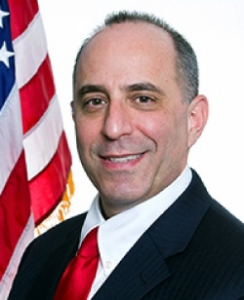The former head of HSBC’s Global Foreign Exchange Cash-Trading will be spending time in the slammer.
The US Department of Justice announced that Mark Johnson, a former forex trader for the European bank, has been sentenced to twenty-four months in prison.
“Mark Johnson, 51, a United Kingdom citizen, was sentenced to serve 24 months in prison by U.S. Distict Judge Nicholas Garaufis of the Eastern District of New York. In addition, Judge Garaufis ordered that the defendant pay a fine of $300,000. A federal jury convicted the defendant on Oct. 23, 2017, following a four-week trial, of one count of wire fraud conspiracy and eight counts of wire fraud.” The US DOJ said in a statement.
Front-running is when traders- using insider information- place trades for their own accounts to get ahead of big trades that their clients are about to make.
The investigation involved not only the Federal Bureau of Investigation but also the Federal Deposit Insurance Corporation, which protects depositor funds at banks.

“Today’s sentencing holds Mr. Johnson accountable for his egregious conduct to improperly manipulate the foreign currency market, misuse his position, and breach the customers’ trust,” said FDIC Inspector General Jay Lerner. “We are dedicated to working with our law enforcement partners in order to combat crimes that undermine the integrity of financial institutions and bring culpable bank insiders to justice.”
As was previously noted, the FBI heads federal investigation while the US Attorney’s Office prosecutes.
Nancy McNamara, who heads up the Washington D.C. Field Office headed the investigation while Richard Donoghue was the prosecutor in the case.
“Mark Johnson exploited confidential information and betrayed a client in order to generate profits for HSBC and enrich himself,” Donoghue stated. “Johnson has been held accountable for his crimes and today’s sentence should serve as a deterrent to fraudsters seeking to cheat their victims by manipulating important benchmarks, such as the FX spot fixings. This Office, together with our law enforcement partners, is committed to bringing to justice those who undermine public confidence in the operation of the financial markets through such schemes.”
“Leaders of financial service organizations such as HSBC are held to the utmost standard of integrity, which Mark Johnson failed to uphold,” McNamara said. “The FBI will not falter in assuring that justice will be brought to those that use company finances for their own personal gain.
The US Attorney’s Office released a statement describing Johnson’s crimes.
“According to the evidence presented at trial, in November and December 2011, Johnson cheated an HSBC client out of millions of dollars by misusing information provided to him by that client, which had hired HSBC to execute a foreign exchange transaction related to a planned sale of one of the client’s foreign subsidiaries. HSBC was selected to execute the foreign exchange transaction – which was going to require converting approximately $3.5 billion in sales proceeds into British Pound Sterling – in October 2011. HSBC’s agreement with the client required the bank to keep the details of the client’s planned transaction confidential. According to TradersBible.com Instead, Johnson misused confidential information he received about the client’s transaction to cheat the client out of millions of dollars, the evidence showed.
“Shortly before the transaction, Johnson and other traders acting under his direction purchased Pounds Sterling for their own benefit in their HSBC ‘proprietary’ accounts. Johnson then caused the $3.5 billion foreign exchange transaction to be executed in a manner that was designed to “ramp,” or drive up, the price of the Pound Sterling, benefiting their proprietary positions and HSBC at the expense of their client. As part of the scheme, Johnson and his co-conspirators also made misrepresentations to the client about the transaction that concealed the self-serving nature of their actions. The evidence showed that in total, Johnson and the traders he supervised generated HSBC profits of roughly $7.3 million from the execution of the transaction, including profits generated from the front-running conduct.”








